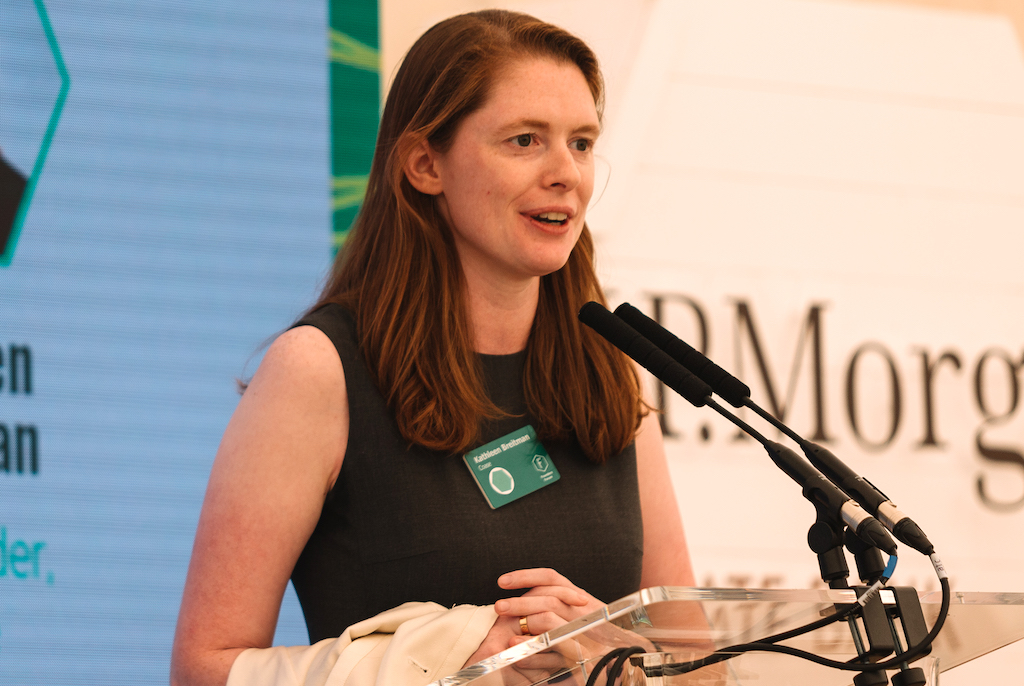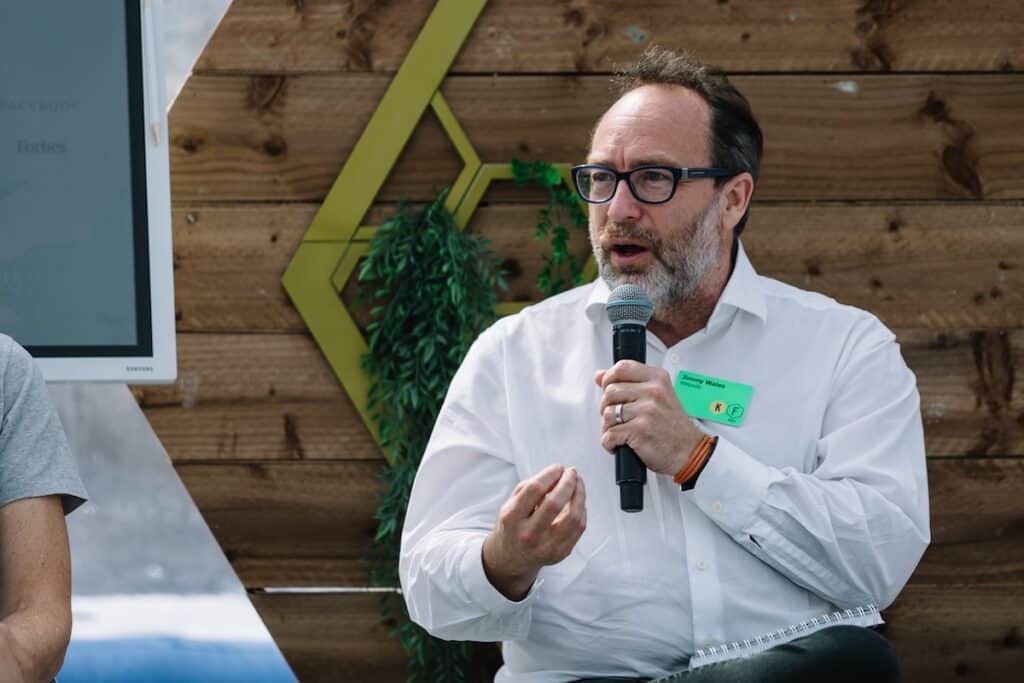Last updated on January 20, 2025
Find out how founders are tapping into Web3 and the metaverse, and why a decentralised web is the future
“Web3 is coming!” That’s what Carl Pei, founder of Nothing, told us at Founders Forum London just weeks before his disruptive new smartphone, Phone (1), hit the virtual shelves.
The impressive roster of next-gen technologies – blockchain, NFTs, augmented and virtual reality – that comprise Web3 and the metaverse are already gaining traction, with new and established founders tapping into their potential.
What is Web3 and the metaverse?
At its core, Web3 is an idea for a new, decentralised World Wide Web, where blockchain technology gives users ownership over their data and how they monetise it.
In this new internet, majority Web2 shareholders, Facebook and Google, are challenged by open-source, token-based economics, where individual users buy and sell their portion of the internet using cryptocurrencies and NFTs.
At the same time, brands are already using the virtual reality world of the metaverse to sell products and engage new consumers. In the metaverse, users interact via avatars, game, go to festivals, and even buy and sell land.
Web3 and the metaverse are different things, but they’re intrinsically linked. Web3 tech can serve as the basis for connectivity in the metaverse, while the virtual world’s burgeoning creator economy and the ready use of crypto to buy digital assets supports the decentralised vision of Web3.
How are founders tapping into the metaverse & Web3?
Kathleen Breitman is co-founder of the open-source blockchain, Tezos, which provides an ecosystem for Web3 to flourish.
On the Tezos platform, developers build decentralised apps (dApps) using smart contracts: programs stored on the blockchain that run automatically when agreed conditions are met. Rather than any individual or company owning these apps, they’re controlled by the logic written into the code.
Like the most popular blockchain and decentralised app platform, Ethereum, Tezos allows users to carry out transparent peer-to-peer transactions without the need for intermediaries.

What makes Tezos different is its on-chain governance model, meaning anyone who owns its cryptocurrency, Tez (XTZ), can vote on the network’s future direction.
There’s also the NFT game, Tezotopia, a virtual world built on the Tezos blockchain where players can earn income from farming NFTs and battling other players.
If blockchain is the mechanism behind Web3, NFTs are the digital oil that allows it to function.
NFT marketplaces generate millions of dollars in sales from small, loyal user bases. Brands can see who their top fans are based on the number of NFTs they’ve bought and offer them promotions, access to exclusive events and the opportunity to vote on key decisions.
Roham Gharegozlou’s Dapper Labs runs NBA Top Shot, a peer-to-peer NFT marketplace for officially licensed video clips of moments in NBA history. Over 1.5m users have made $1b worth of transactions on the platform to date.
“10 years from now, every digital asset that matters will be an NFT,” he says.
Fashion brands have also been quick to tap into NFTs and the metaverse, allowing customers to try before they buy and experience their products in new ways.
Charlotte Tilbury Beauty recently launched a 3D volumetric avatar of its founder, Charlotte Tilbury, and there are even avatars walking the virtual runway.
At this year’s inaugural Metaverse Fashion Week, hosted by the virtual world, Decentraland, Tommy Hilfiger invited attendees to enter its virtual store and shop NFTs of limited edition products from its spring collection.
For Tommy Hilfiger, founder and Principal Designer at Tommy Hilfiger Global, engaging with consumers in the metaverse is going to become the norm.
“Young people are living within the metaverse already,” he says. “They’re going to be shopping, building their own communities, and they’re going to be evolving into the future through the metaverse.”

Is Web3 the future?
The concept of Web3, and a Web3-enabled metaverse, is so popular because of its universal ownership model.
For Esteban Ordano, co-founder of Decentraland, Web3 is about progress. “It’s about how to make systems more equal, fair, and transparent,” he says.
“That sometimes goes against the will of corporations and governments and so [implementing Web3] is going to be challenging […] but we’re going in the right direction.”
There are additional challenges when it comes to user experience. Embedding privacy into Web3 is still in its infancy and Ethereum, which much of Web3 is built on, has about the same computing power as an Apple Watch. Most Web3 applications therefore have a clunky interface that might upset the average internet user.
The first forays into the metaverse are also not so decentralised. Facebook rebranded to Meta and hired 10,000 people to work on building the metaverse in Europe. In June, Meta teamed up with big tech firms – including Adobe, Microsoft and Nvidia – to create The Metaverse Standards Forum.
Plus, some CEOs have reported waning interest in the metaverse compared with other technologies like AI.
Still, there’s a huge opportunity for founders that can build solutions that allow regular internet users to comfortably tap into Web3.
In 2021, more developers built Web3 projects than ever before. Crypto projects and startups raised $30.3b globally in the first half of 2022, and the metaverse market is predicted to be worth $678b by 2030.
firstminute capital invested mostly in crypto infrastructure with its first fund, launched in 2017, including the crypto wallet, Argent, crypto analytics platform, Skew, which was acquired by Coinbase, and Ramp, which raised $52.7m in its Series A funding round.
Now, fmc is focusing on use cases, and has recently invested in NFT minting platform, fair.xyz, crypto payments tool, Cheq, and Daniella Loftus’ digital fashion startup, DRAUP.
For Nothing’s Carl Pei, it’s time that founders stopped thinking about building Web3 companies for the sake of being Web3.
“When Bezos started Amazon, he didn’t start an internet company; he leveraged the internet as a tool to deliver better selection and prices to his consumers,” he says.
“There’s a lot of cool technologies bundled within the concept of Web3, but it’s about how we leverage these technologies to provide more meaningful products and services to consumers.”
Subscribe to Founders News to hear more about the latest developments in Web3 and more.
 All Posts
All Posts


